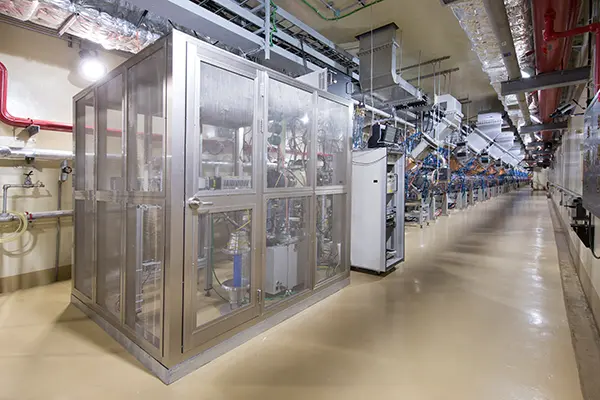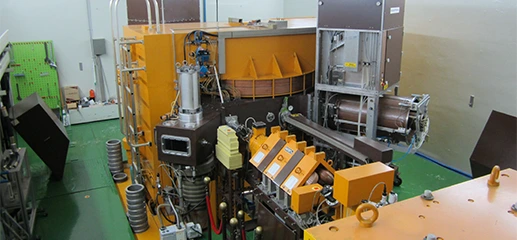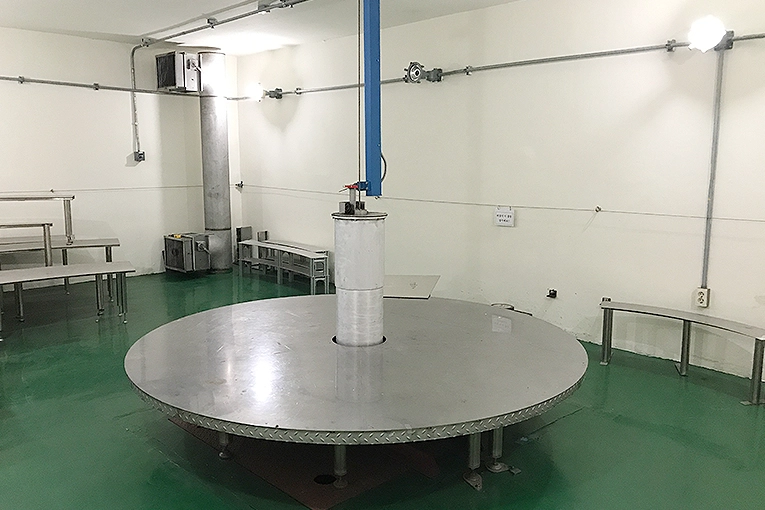Evaluating soft errors or single event phenomena occurring in high-altitude or outer atmospheric space should focus primarily on heavy ions and protons, which are particles observed in the space environment. Generally, space radiation testing is based on heavy ion and TID evaluations, with proton testing recommended as a secondary option.
Another essential evaluation in space radiation testing is the Total Ionizing Dose (TID) effect caused by charged particles. Although this can be caused by protons and heavy ions, it is commonly and efficiently evaluated using gamma rays.
Recently, the demand for electronic components exposed to radiation environments in advanced industries such as space, defense, nuclear, and medical sectors has increased rapidly. In the space sector in particular, electronic components mounted on satellites and launch vehicles are continuously exposed to space radiation, making it essential to verify that these components operate reliably in such environments.
Radiation evaluation infrastructure is a key foundation for securing technology sovereignty in Korea’s independent development and potential export of space components. As private-led independent space development projects advance, the demand for highly reliable electronic components is increasing.
Radiation test infrastructure not only strengthens the foundation of the space industry but is also a strategic asset for Korea to lead the future technological race in space. Below is a summary of Korea’s major radiation evaluation facilities.
Proton Accelerators
KOMAC – Korea Multi-purpose Accelerator Complex (Gyeongju, Gyeongbuk)
KOMAC, located in Gyeongju, offers proton irradiation at 20MeV and 100MeV. The table below shows the specifications of the proton accelerator.

KOMAC 100MeV Proton Accelerator
Image source: KOMAC Official Website
https://komac.kaeri.re.kr/komac/img/sub/inst01_01.png
| Category | 20MeV | 100MeV |
|---|---|---|
| Energy [MeV] | 20 | 100 |
| Peak Current (mA) | 0.1 ~ 20 | 0.1 ~ 20 |
| Max Beam Duty (%) | 24 | 8 |
| Avg Current [mA] | 0.1 ~ 4.8 | 0.1 ~ 1.6 |
| Pulse Length [ms] | 0.02 ~ 2.0 | 0.05 ~ 1.33 |
| Max Repetition Rate [Hz] | 120 | 60 |
| Max Beam Power [kW] | 96 | 160 |
KOMAC Proton Accelerator Specifications
KIRAMS – Korea Institute of Radiological & Medical Sciences (Nowon-gu, Seoul)
Located in Nowon-gu, Seoul, KIRAMS provides 20–45MeV proton beams using the MC-50 Cyclotron. A cyclotron accelerates particles near the speed of light by circular motion in a magnetic field. The following table outlines the specifications.

KIRAMS 50MeV Particle Accelerator
Image source: KIRAMS Official Website
https://www.kirams.re.kr/common/front/rirams/images/sub/img_equip_02.png
| Particle | Energy | Current | Max Irradiation Area |
|---|---|---|---|
| Proton | 20MeV ~ 40MeV | 1nA ~ 20uA | 2cm x 2cm |
| Deuteron | ~ 45MeV | - | 30cm x 30cm |
| Alpha (4HE) | 25MeV ~ 45MeV | ~200nA | 2cm x 2cm |
KIRAMS Particle Accelerator Specifications
Gamma Ray Irradiation Facilities
ARTI – Advanced Radiation Technology Institute (Jeongeup, Jeonbuk)
Located in Jeongeup, ARTI provides gamma irradiation facilities from 0.5kCi up to 470kCi. Using gamma rays from Co60, ARTI provides precision irradiation services for agriculture, aerospace, and basic science applications.

ARTI Low-Dose Gamma Irradiation Facility
Image source: ARTI Official Website
https://www.kaeri.re.kr/resources/images/arti/contents/facility_02.jpg
Heavy Ion Accelerators
Currently, Korea does not have Korean heavy ion accelerator infrastructure suitable for SEE (Single Event Effect) testing of semiconductors. As a result, overseas facilities are required for space and radiation environment reliability tests.
To address this, the Korea Institute of Science and Technology (KIST) is pursuing heavy ion accelerator development. Additionally, the RAON accelerator by IBS (Institute for Basic Science) is Korea’s first large-scale heavy ion accelerator being developed for both nuclear physics and practical applications like SEE evaluation.
Once these projects are completed, independent SEE testing in Korea will be possible.
QRT Radiation Hardness Evaluation Services
QRT provides customized radiation hardness evaluation services using various Korean and international radiation facilities.
Please contact us via this link for more details.
Related Articles


